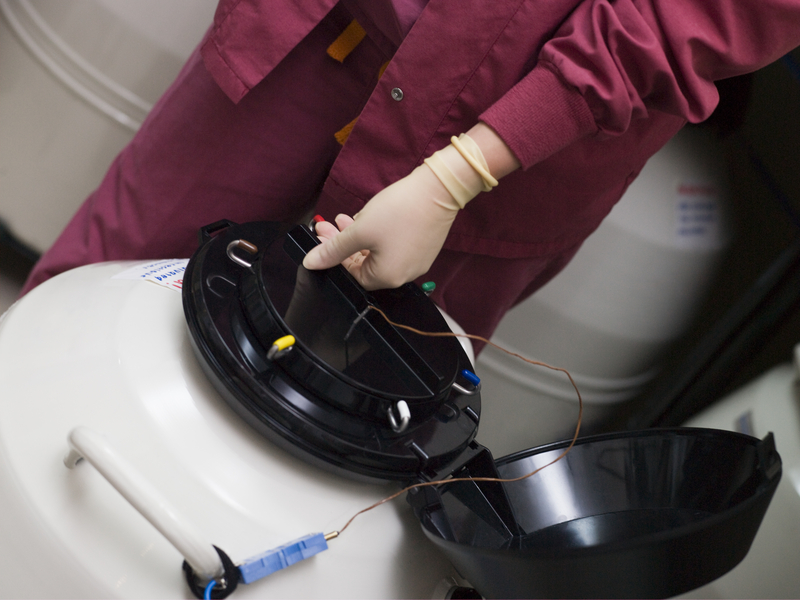Fresh or Frozen? A Quick Guide to Using Donor Eggs

When using an Egg Donor, Intended Parents have the option of choosing either fresh Donor eggs or frozen Donor eggs for implantation. Both options have pros and cons, so the decision boils down to what your personal needs are.
How the Processes of Fresh and Frozen Donor Eggs Differ
Whether you are using a fresh or frozen Donor egg, the process begins basically the same – Intended Parents review either an Egg Donor database or a frozen egg bank database. However, when using a fresh egg, you will typically spend more time consulting with the egg donation agency during the early stages of Donor selection. The reason is that fresh egg donation requires an increased amount of medical, logistical, financial, and legal coordination.
Using a frozen Donor egg is a bit more independent in terms of Egg Donor selection. Once you have paid a flat fee for a set number of eggs and completed all the necessary paperwork, the eggs are shipped to the fertility center or clinic of your choice.
When it comes to implantation, using a fresh Donor egg requires that both the Egg Donor and the Intended Parent have their cycles synchronized so that the egg can be fertilized upon retrieval and then immediately implanted. The process of cycling can take up to several months to complete.
With a frozen egg, the eggs are fertilized by the embryologist at your chosen fertility center and the embryos are maintained in the lab for whenever you’re ready to begin the process. This gives Intended Parents a lot more freedom in terms of when to have the embryo implanted. Once you’re ready, your fertility specialist will work with you to schedule all the preparation necessary for your embryo transfer.
Fresh Donor Eggs vs. Frozen Donor Eggs: Pros and Cons
One of the main advantages of using a frozen Donor egg is that, because it doesn’t rely on the synchronization of both the Donor and Intended Parent’s cycles, the process can be conveniently done on your own timetable. It also eliminates various obstacles that sometimes happen when using a fresh Donor egg. For example, you never have to worry about logistical conflicts, unexpected Donor expenses, or your Egg Donor backing out. It’s also a slightly lower-cost option since you don’t have to cover line items such as Donor travel expenses.
Contact us at Egg Bank America and Egg Donor America to learn more about your fresh and frozen Egg Donor options.